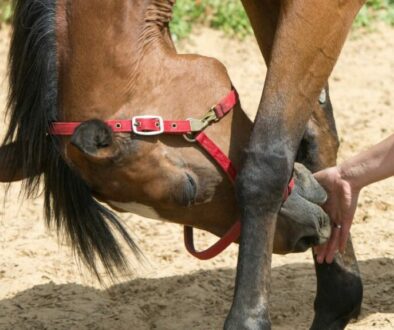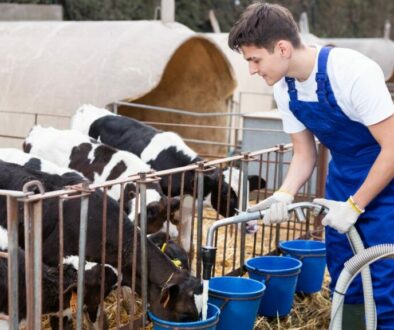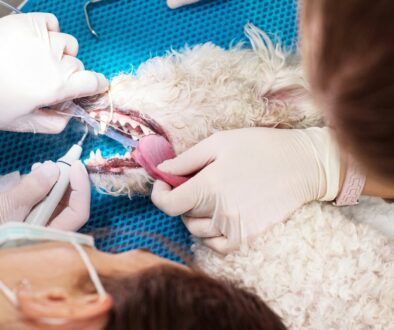How To Become An Animal Nutritionist?
Becoming an animal nutritionist can be an exciting and rewarding career path. If you are passionate about animals and have an interest in nutrition, there are several steps you can take to start your journey towards becoming an animal nutritionist.
Steps To Becoming An Animal Nutritionist
Becoming an animal nutritionist is an excellent career choice for individuals who are passionate about animal health and welfare. Animal nutritionists work closely with farmers, pet owners, and animal welfare organizations to develop and implement feeding programs that promote optimal health and performance in animals.
- Bachelor’s Degree
The first step towards becoming an animal nutritionist is to obtain a bachelor’s degree in animal science or another related field. During your undergraduate studies, you will learn about animal biology, chemistry, nutrition, and physiology. These courses provide a solid foundation for understanding animal nutrition and the role it plays in animal health and welfare.
- Master’s Degree
After obtaining your bachelor’s degree, you may want to consider pursuing a master’s degree in animal nutrition. With a master’s degree, you will gain a deeper understanding of animal nutrition, research, and analysis, which can be helpful in your future career as an animal nutritionist. Additionally, a master’s degree can increase your earning potential and open up more job opportunities.
- Practical Experience
Another crucial step towards becoming an animal nutritionist is to gain practical experience. Internships, externships, and volunteer work can provide invaluable hands-on experience in the field, which can increase your chances of finding employment after graduation. Many animal nutritionists start their careers as assistants to experienced professionals and work their way up to more senior positions. You can check authentic online job portals like Indeed and ZipRecruiter for more Internship opportunities.
- Continuing Education
It’s also beneficial to take continuing education courses to keep up with new research and developments in animal nutrition. Continued learning can help you to stay relevant in the field and provide the best possible advice to your clients. Attending conferences, workshops, and seminars can also provide networking opportunities and help you to stay up-to-date on industry trends and best practices. Organizations like the American Feed Industry Association (AFIA) offer resources and courses that can help you stay updated on the latest research and trends in animal nutrition.
Animal nutritionists work in a variety of settings, including universities, government agencies, feed manufacturers, and consulting firms. Some animal nutritionists specialize in a particular species, such as horses, cows, or dogs, while others work with a variety of animals. Regardless of the setting or specialization, animal nutritionists play a critical role in promoting animal health and welfare through proper nutrition.
Skills Needed to Become an Animal Nutritionist
Animal nutritionists are professionals who specialize in the dietary requirements of animals. They work with farmers, pet owners, and animal welfare organizations to ensure that animals receive the optimal nutrition they need to maintain good health. Becoming an animal nutritionist requires a combination of formal education, practical experience, and a set of specific skills.
An understanding of animal biology and physiology is a fundamental requirement for becoming an animal nutritionist. This knowledge helps nutritionists to understand the unique nutritional needs of different animals, as well as how those needs change throughout their lives. It also enables them to develop dietary plans that are tailored to the specific needs of individual animals.
A strong foundation in chemistry and nutrition is also essential for animal nutritionists. This knowledge helps them to understand the chemical composition of different foods and how they interact with the body. It also enables them to develop balanced diets that meet the nutritional needs of animals.
In addition to technical skills, animal nutritionists must possess effective communication skills. They need to be able to explain complex scientific concepts to clients in a way that is easy to understand. They must also be able to listen to clients’ concerns and questions and provide clear and concise answers.
Critical thinking and problem-solving skills are also vital for animal nutritionists. They need to be able to analyze complex data, identify problems, and develop effective solutions. This requires a deep understanding of animal nutrition, as well as the ability to think creatively and outside the box.
Attention to detail and the ability to work independently are also important skills for animal nutritionists. They must be able to carefully monitor animals’ diets and make adjustments as needed. They must also be able to work independently, managing their own schedules and prioritizing tasks to ensure that they meet clients’ needs.
Becoming an animal nutritionist requires a combination of formal education, practical experience, and a set of specific skills. These skills include an understanding of animal biology and physiology, a strong foundation in chemistry and nutrition, effective communication skills, critical thinking and problem-solving skills, and attention to detail and the ability to work independently. By developing these skills, animal nutritionists can provide the best possible care and advice to their clients, helping to ensure that animals receive the optimal nutrition they need to maintain good health.
What is An Animal Nutritionist?
Animal nutritionists are professionals who specialize in the study of animal nutrition and feeding. They play a crucial role in ensuring the health and well-being of animals by developing and implementing feeding programs that meet their specific nutritional requirements.
Animal nutritionists are knowledgeable about the dietary needs of different animals, including livestock, pets, and zoo animals. They conduct extensive research to determine the nutritional requirements of different animal species, taking into account various factors such as age, weight, and activity level.
Animal nutritionists analyze animal feed to determine its nutritional content and develop diets that meet the animal’s specific nutritional needs. They work closely with animal owners, farmers, and veterinarians to ensure that the animals are receiving the appropriate nutrients for their growth, health, and well-being.
Animal nutritionists also conduct research to identify new feeding strategies and develop new feed products that can benefit animal health and productivity. They stay up-to-date with the latest research and advancements in animal nutrition to continually improve the feeding programs they develop.
Animal nutritionists work in a variety of settings, including research facilities, universities, government agencies, and private companies. They may specialize in a particular type of animal or work with a variety of animal species.
The Benefits of Becoming an Animal Nutritionist
Animal nutritionists play a crucial role in ensuring the health and well-being of animals. They are experts in animal nutrition and feeding, and they work to develop feeding programs that meet the specific nutritional needs of different animal species. Animal nutritionists conduct research to identify new feeding strategies and develop new feed products that can benefit animal health and productivity.
According to ZipRecruiter, the average salary in the United States is around $54,137/year as of August 2024. In addition to these benefits, there are many other reasons why working as an animal nutritionist can be a fulfilling career choice. For example, animal nutritionists have the opportunity to work with a wide range of animals, from household pets to livestock and even exotic animals in zoos and wildlife parks.
As an animal nutritionist, you will be responsible for developing and implementing feeding programs that meet the specific nutritional needs of each animal. This can involve analyzing the animal’s diet, conducting research to identify the best sources of nutrients, and developing specialized formulas to address specific health concerns.
Animal nutritionists also have the opportunity to work with other professionals in the field, such as veterinarians, animal behaviorists, and animal welfare advocates. By collaborating with these professionals, you can help to ensure that animals receive the best possible care and treatment.
Another benefit of working as an animal nutritionist is the opportunity to make a positive impact on the environment. By developing sustainable feeding practices, you can help to reduce waste and minimize the environmental impact of animal agriculture.
Overall, working as an animal nutritionist can be a challenging and rewarding career choice. Whether you are passionate about animal health, sustainability, or simply enjoy working with animals, this field offers a wide range of opportunities for personal and professional growth. So if you are considering a career in animal nutrition, there has never been a better time to get started!
Becoming an animal nutritionist can be a challenging but rewarding career path. A combination of formal education, practical experience, and essential skills can help you excel in the field and provide the best possible care and advice to your clients. As an animal nutritionist, you can work towards improving the lives of animals, maintaining their health, and contributing to the animal industry’s growth.




